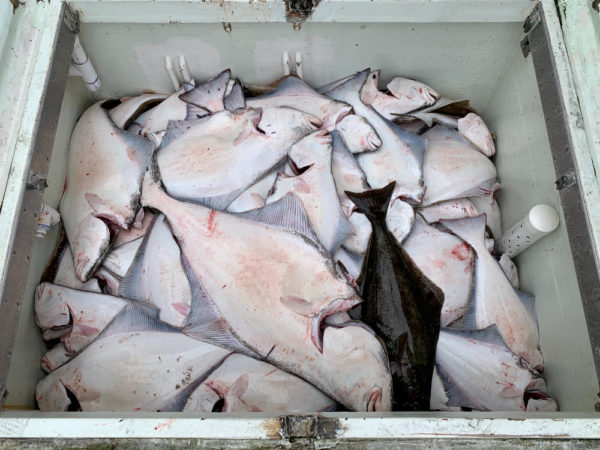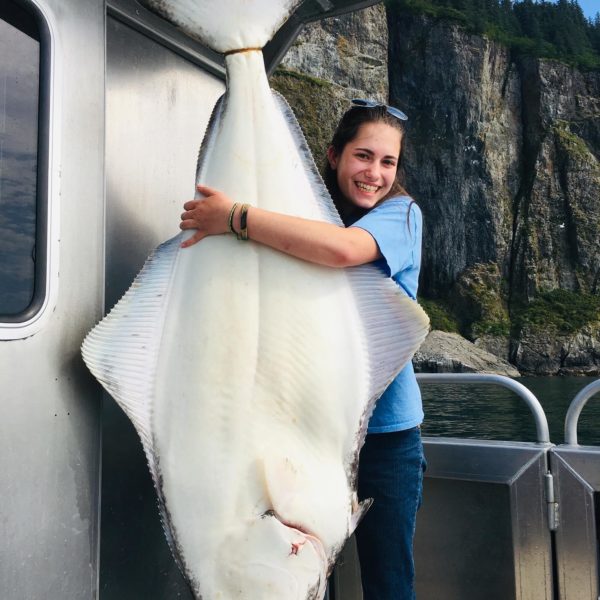
Regulations for Alaska halibut charters are looser this summer for the second year in a row.
The groups regulating halibut fishing say they decided this winter to relax restrictions again to make fishing more appealing to Alaska anglers amid the pandemic.
But what they didn’t expect was just how quickly COVID-19 vaccines would roll out, and how much demand there would be for fishing charters.
“We tried to anticipate the possibility back in December of the fact that it was going to take a lot longer to be able to administer vaccines than it actually has,” said Andy Mezirow, of Seward, who serves on the North Pacific Fishery Management Council.
“Obviously, we didn’t necessarily anticipate this pent-up demand to go travel and come to Alaska,” he said. “Because we have a lot of people coming now. More than we had anticipated.”

Last year’s changes aimed to get more Alaskans out on boats in Southcentral and Southeast, as COVID-19 curbed visitations from out of state.
This year’s regulations are largely the same. Anglers in Southcentral are allowed two halibut a day. Now, that second fish can be 32 inches long, up from 26 inches.
Charters can also take people out on the water more days each week. Usually, Tuesdays and Wednesdays are closed to halibut fishing. This year, only Wednesdays are off-limits.
“And so we took regulations that would allow for a harvest of about 25 percent more fish than we normally would, because we figured business would be down by that much,” Mezirow said. “And if you think about the way things were in December, it looked like that was a pretty conservative step to take.”
Last year, anticipating more of a COVID-19-related decline, the council opened both Tuesdays and Wednesdays to charters.
Mezirow said the changes really helped.
Dave Goggia agrees. He owns Hooky Charters in Kenai.
“To be honest, it’s hard to find a 26-inch halibut,” he said. “And not a lot of people want to keep those. So going back to 32 inches was a great idea for last year.”
It was a much needed shot in the arm during a tough time in the season, Mezirow said.
But now that more tourists are getting actual shots in the arm — of vaccine — charter operators like Goggia have full rosters of visitors.
“We do have a lot of reservations this year,” Goggia said. “It seems like people are over COVID and ready to get out and catch fish.”
Mezirow said he’s hearing that from a lot of operators. But he said he’s not worried about overfishing, though he does think the charter fleet will go over its allocation this year.
“The impacts of the charter fleet going over their allocation isn’t really a conservation concern, unless they were to go over it in some unimaginable way,” Mezirow said.
He said they may face steeper restrictions next year, but he doesn’t anticipate the action from the charter fleet this summer jeopardizing the stock. Charter halibut fishing makes up a small portion of the overall halibut take, he said.
And last year, he pointed out, the fleet left half a million pounds of its allocation in the water.




